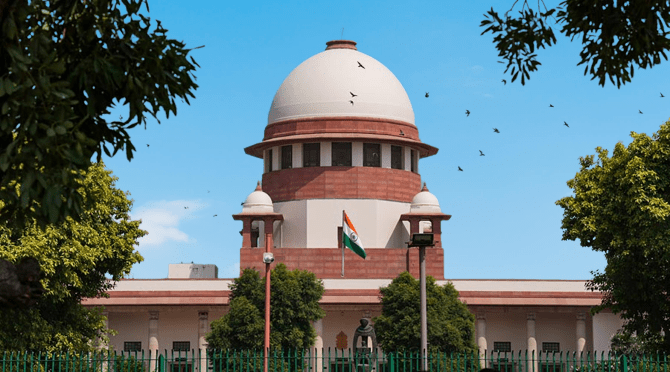
The appeal to promote Grade I and Assistant Engineer was denied on March 28 by the SC because the applicant needed to gain the necessary degree, and the court could not set the requirements or determine whether a course was equivalent.
Was the respondents’ right to promotion to Superintendent BR, Grade-I, in dispute?
The petitioner and the Union of India were represented by attorneys, Tapas Das for the appellant and Sharma for the latter. here: SC: The Opposition’s Alternative Is Political Action, Not Legal Action Even though the plea for claimed abuses by the ED and CBI was rejected The appellants in this case requested promotion to the positions of Superintendent BR Grade-I and Assistant Engineer in accordance with Column 11 of the General Reserve Engineer Force Group ‘C’ and Group ‘D’ Recruitment Rules, 1982 (the “GREF Rules, 1982”). The Supreme Court rejected the Plea for alleged abuses of the ED and CBI, ruling that the appellants lacked the necessary credentials and were ineligible for promotion under Rule 11 of the GREF Rules, 1982. The appellant argued that their Diploma in Civil Engineering should be considered equal to the Diploma in Draughtsman Estimating and Design (DED). However, the rule stated that only those with 5 years of regular service in the General Reserve Engineering Force grade would be eligible
The Bench noted that equivalence is a technical scholarly issue in Guru Nanak Dev University v. Sanjay Kumar Katwal[1]. It cannot be implied or presumed and in Zahoor Ahmad Rather v. Imtiyaz Ahmad,[2] it was decided that judicial review cannot determine whether the prescribed qualifications are equivalent to any other given qualification or determine whether the prescribed qualifications are to be expanded.
The Court observed that the Union of India had created the GREF Rules 1982 in accordance with Article 309 of the Indian Constitution. According to Rule 2 of the aforementioned Rules, they are applicable to the positions listed in Column 1 of the Schedule appendix to the Rules. The Court rejected the argument that a diploma is equivalent to a degree because the rule itself is explicit and clear and only permits candidates with a diploma in civil engineering and five years of consistent service in the grade in the General Reserve Engineering Force to be promoted to Superintendent BR Grade-I. The court further stated that it is familiar law that until and unless the rule itself specifies the equivalency, courts will not proclaim the qualification of a course as well as its equivalency.
Accordingly, the Court ruled that the diploma courses provided by the College of Military Engineering, Pune, which were approved as a course for recruitment to positions with the Central Government via a notification dated 01-02-2001 issued by the Ministry of Human Resource Development, do not indicate that the diploma courses listed therein, which the Government approved, will be treated as equivalent. Furthermore, the appellants still need evidence to support their claim that a diploma in drafting, estimation, and design is equal to a diploma in civil engineering. According to the Court, candidates were denied promotions because they lacked the required certificate, a “Diploma in Civil Engineering,” and not because they held a two- or three-year diploma. Accordingly, the Court ruled that it is untrue that there are no year-by-year requirements for the diploma course to qualify for the advancement to Superintendent BR Grade-I. As a result, the petition was denied.
NEWS ARTICLE: Courts cannot prescribe qualification or declare equivalency of a course unless equivalency is defined under the rule itself, as reiterated by SC in Unnikrishnan CV v. Union of India
CASE TITLE: Unnikrishnan CV v. Union of India
NAME: SARAH GARIMA TIGGA; SEMESTER: VI ,COLLEGE: SYMBIOSIS LAW SCHOOL (PUNE)
[1] Guru Nanak Dev University v. Sanjay Kumar Katwal; (2009) 1 SCC 610.
[2] Zahoor Ahmad Rather v. Imtiyaz Ahmad; (2019) 2 SCC 404




0 Comments